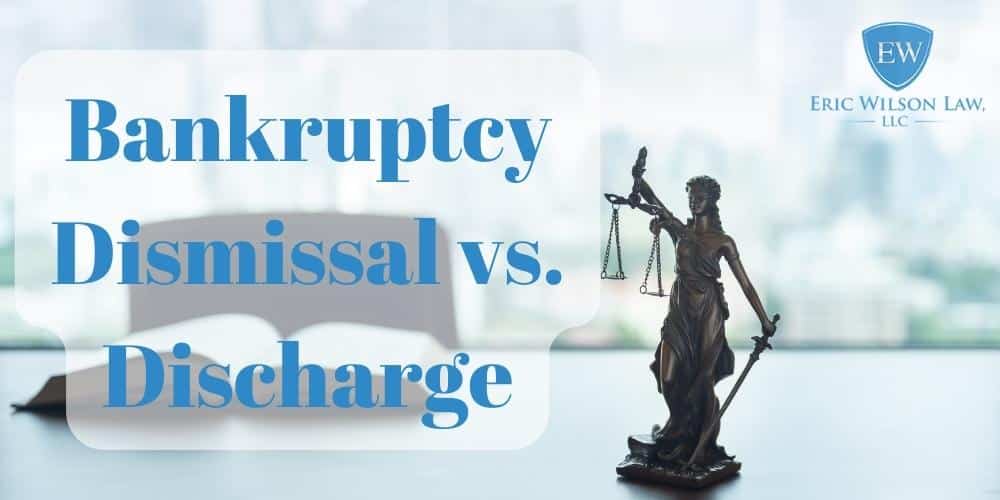Bankruptcy can be a reset button for many families, but the process isn’t as easy as pressing a button. Bankruptcy courts have strict rules and regulations that you have to follow when it comes to filing for bankruptcy. Following these rules can mean the bankruptcy court grants a discharge. If these rules are violated, the case can end in a dismissal. Bankruptcy terminology can be very confusing, especially for first-time filers or people exploring their options.
Bankruptcy dismissal vs. discharge can be a complicated and confusing matter. At Eric Wilson Law, our bankruptcy attorneys are ready to help you in whatever way we can. From answering your questions about bankruptcy to rebuilding your credit after bankruptcy, we’ve got you covered. If you have more questions about the services we offer, don’t hesitate to reach out to us. Call us today for a free consultation at 205-349-1280.
What is a Bankruptcy Discharge?
If you’ve received a bankruptcy discharge, congratulations! Discharging debts is the overall goal of bankruptcy. Discharging debt means that you are no longer legally responsible for those debts. A court-granted discharge means that your creditors cannot make any more collection attempts or sue you for the original debts. Debt discharge gives many families a fresh start and allows them to move on from debt.
Discharge is not the only outcome possible in a bankruptcy case. Insufficient information, cold feet, or other factors can result in a dismissal of a bankruptcy case.
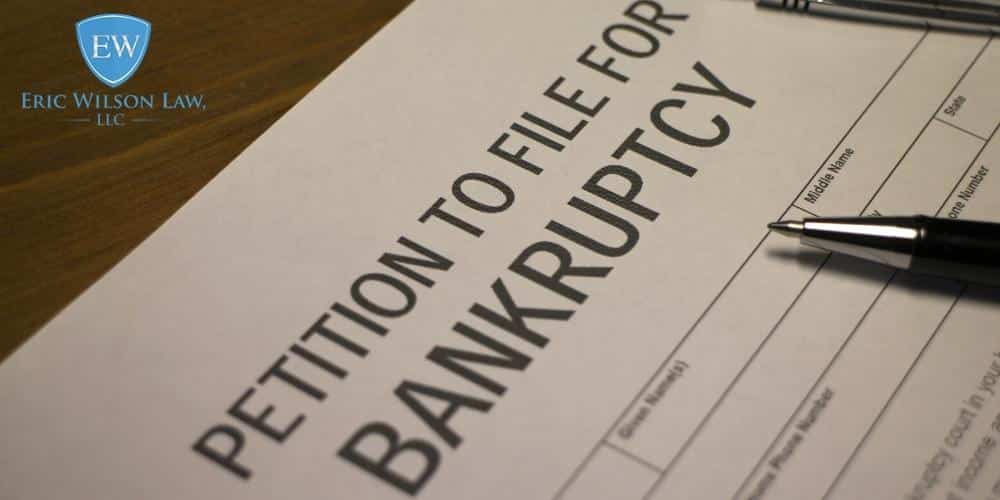
What is a Bankruptcy Dismissal?
Unlike a discharge, a bankruptcy dismissal is not the ideal outcome of a bankruptcy case. A bankruptcy dismissal means that your case has stopped for some reason. The bankruptcy case can be stopped by the filer, often called a voluntary dismissal, or by the bankruptcy court. This would be an involuntary dismissal. The reasons for dismissal can vary, but it often means that some part of the Bankruptcy Code was not followed.
Voluntary Bankruptcy Dismissal
Bankruptcy dismissals can happen for any number of reasons. Dismissal can be either voluntary or involuntary. A Chapter 13 bankruptcy case can be dismissed at any point, but a Chapter 7 dismissal isn’t quite as easy.
When a bankruptcy petition is dismissed, you lose the protection of the automatic stay a bankruptcy case affords. This means that creditors can resume collections efforts until you file again and get bankruptcy protection again.
Chapter 7 Voluntary Dismissal
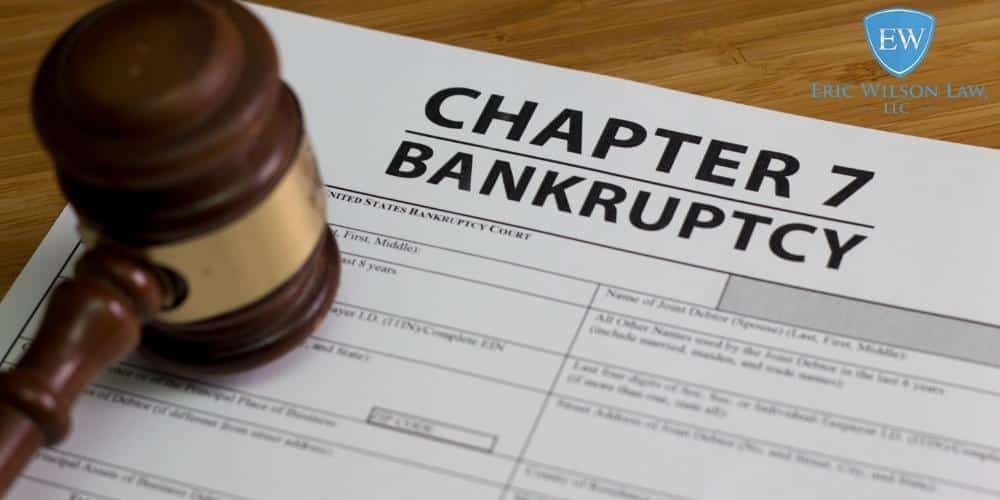
A Chapter 7 voluntary dismissal is often not easy. The time frame for a Chapter 7 bankruptcy case is significantly shorter than a Chapter 13 case. Chapter 7 cases often wrap up in as little as 90 days. In most cases, you should assume that you can’t dismiss a Chapter 7 bankruptcy case. Dismissing a Chapter 7 case will not benefit any unsecured creditors because the only way they can get money for your defaulted debts is through a bankruptcy case. Because of this, a Chapter 7 case probably won’t be granted.
Chapter 13 Voluntary Dismissal
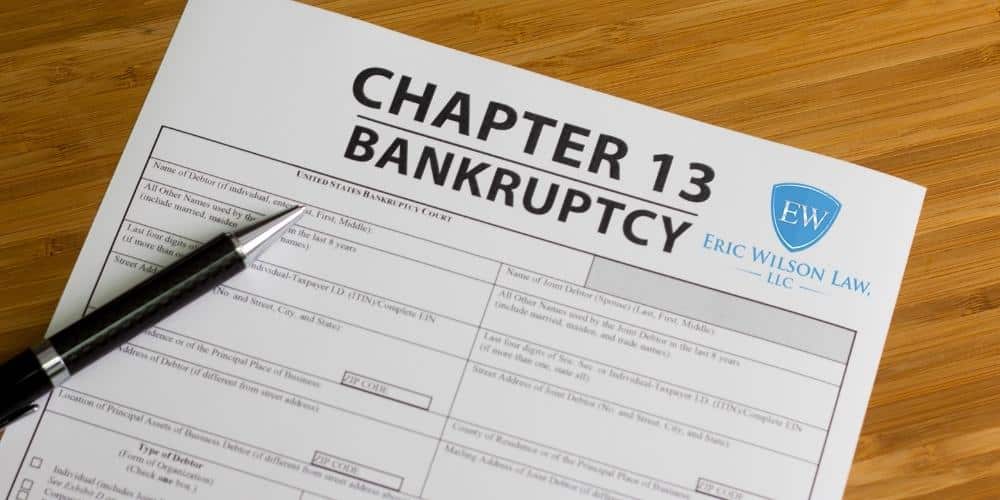
A Chapter 13 dismissal is much easier to obtain than a Chapter 7 voluntary dismissal. The time frame for a Chapter 13 case is often three to five years, depending on the amount of debt you have. You can voluntarily dismiss a Chapter 13 bankruptcy case at any point. A Chapter 13 bankruptcy involves your debts being combined into a long-term repayment plan. A voluntary dismissal may be the best option in your case in certain circumstances. A change in your income such as a sudden job loss or reduced income due to an illness can mean that you are unable to make regular payments on your payment plan. Dismissing the case and then refiling can extend your monthly payment plan and significantly reduce your monthly payments.
Unfortunately, the automatic stay that protects you from creditors is also dismissed with a bankruptcy dismissal. This means that creditors can send collection letters, repossess property, or even begin foreclosure proceedings on your home.
Involuntary Bankruptcy Dismissal
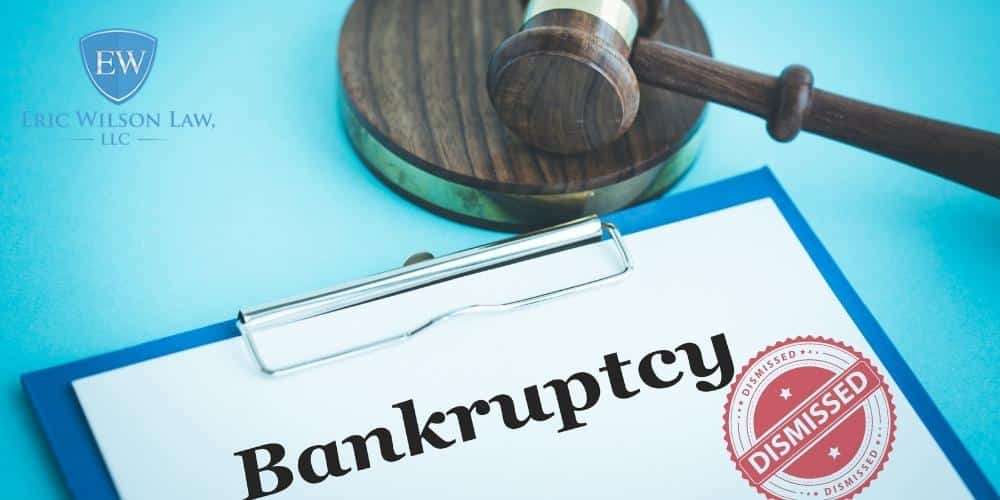
Filing bankruptcy requires you to follow many rules. Any violation of these rules can result in an involuntary dismissal before your debts are discharged. A bankruptcy trustee can file a motion to dismiss your case involuntarily if you fail to:
- Provide honest information to your bankruptcy attorney
- Pay the court filing fee
- Submit all necessary documents
- Attend the 341 meeting of creditors
- Make full and timely payments on child support/alimony
- Pass the Alabama means test
- Complete necessary credit and debt counseling
You can counter the motion to dismiss the case by correcting the necessary paperwork. If your case is dismissed, you can still successfully file in the future.
Dismissal Without Prejudice
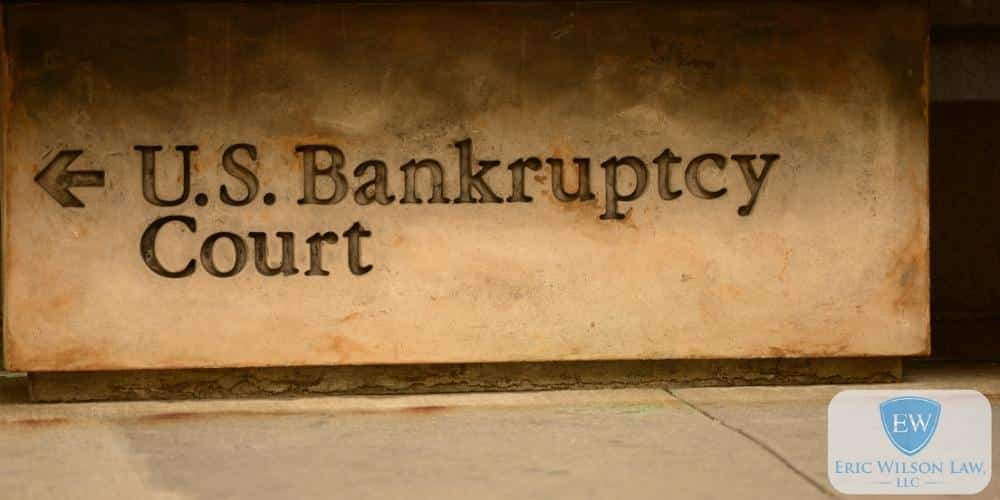
Most dismissals are often dismissed “without prejudice,” unless stated otherwise. A dismissal without prejudice often means you are free to file again once you fix whatever was wrong with your previous filing. This could be as simple as correcting paperwork or attending the correct counseling meetings. Cases dismissed with prejudice often have a few more strings attached.
Dismissal With Prejudice
If your bankruptcy case was dismissed with prejudice, it usually means that the court found some sort of dishonesty in your case. It could be that you took out loans or credit cards prior to filing bankruptcy. Bankruptcy courts see this type of fraud as a serious offense. Hiding assets, being untruthful in your paperwork, and filing bankruptcy multiple times in a short period of time can all be seen as fraud. If your case is dismissed with prejudice, you may not be able to file another bankruptcy case for a certain amount of time. Depending on the court ruling, this time frame could be anywhere from 90 days to an entire year. Dismissals with prejudice can even mean that if you file again in the future, certain debts cannot be discharged.
Can I Re-File After a Dismissal?
If the courts dismiss your bankruptcy case, or if you decide to voluntarily dismiss the case, you can file again in the future. Filing another bankruptcy case after a dismissal can be subject to time limitations depending on the details of your case. As mentioned above, dismissals with prejudice can result in a ban from filing for bankruptcy for up to a year. In cases where the case is dismissed without prejudice, most filers can file again as soon as they want.
Does a Bankruptcy Dismissal Appear on a Credit Report?
A dismissed bankruptcy case does, in fact, appear on your credit report. When you file for bankruptcy, your credit takes a significant hit. When a debt is discharged through bankruptcy, your credit reflects that you no longer have to pay the debt. You can begin the process of slowly building up your credit, free from most debt.
With a bankruptcy dismissal, however, all of your debts are reopened on your credit. This means that delinquent payments and bankruptcy can bring your score down significantly. Bankruptcy and bankruptcy dismissals stay on your credit report for between 7 and 10 years, depending on the circumstances in your case.
How Can a Bankruptcy Lawyer Help Me?
As a bankruptcy attorney, Eric Wilson understands the great amount of stress that comes with financial distress. Our experienced team can answer all your questions, determine the best plan forward, and help you make better debt decisions in the future.
Bankruptcy law can be overwhelming and confusing. Having an attorney-client relationship with an experienced bankruptcy attorney can protect your rights and your future. At Eric Wilson Law, we can help you. With decades of experience with bankruptcy, you can trust that we keep your best interests in mind.

Learn More About Bankruptcy With Tuscaloosa’s Top Bankruptcy Attorney
Our qualified team has been helping families get a fresh start for more than 25 years. We can help you through every step of the bankruptcy process, from the initial filing to rebuilding your life after bankruptcy. For more information about your options, call us today at 205-349-1280.
Eric Wilson Law is a debt relief agency. We help people file for bankruptcy relief under the Bankruptcy Code.


